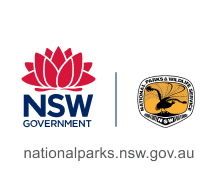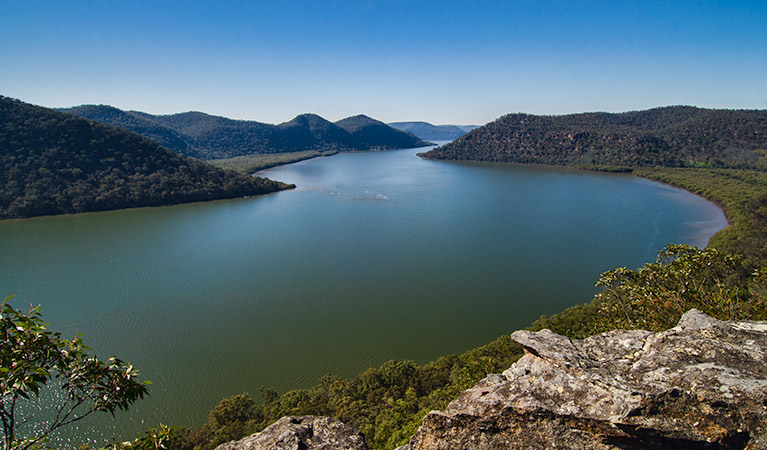Marramarra Creek bushcare camp
Marramarra National Park
Overview
Volunteer with the Marramarra Creek bushcare group and enjoy a camping weekend away in Marramarra National Park, close to Sydney. As a volunteer, you’ll help NSW National Parks remove weeds and restore the habitat of native Australian plants along the shores of the Hawkesbury River.
- Work
- Bush regeneration, weed and pest management
- Accessibility
- No wheelchair access
- Grade
- Medium
NSW National Parks is hosting an overnight bushcare camp at Marramarra National Park. On Day 1, we'll make our way in an NPWS car convoy to the start of the Marramarra Ridge trail, and take a guided Discovery walk to Marramarra Creek. Enjoy a rest and bite to eat before heading a little downstream to our weeding site, where we’ll target scattered lantana and wild tobacco. After setting up camp at Marramarra Creek campground, volunteers will have plenty of leisure time to explore the creek and participate in cultural activities. On Day 2, we’ll get busy with a little more bush regeneration before walking back to Fiddletown.
Volunteers meet at Fiddletown, to transfer overnight equipment to an NPWS convoy car before the guided walk to Marramarra Creek. Limited camping equipment can also be booked by volunteers. Bush regeneration tools, on-site training and catering will be provided.
Find out more about volunteering with us
Local alerts
For the latest updates on fires, closures and other alerts in this area, see https://www.nationalparks.nsw.gov.au/things-to-do/volunteer-activities/marramarra-creek-bushcare-camp/local-alerts
Park info
- in Marramarra National Park in the Sydney and surrounds region
Marramarra National Park is always open but may have to close at times due to poor weather or fire danger.
Visitor info
All the practical information you need to know about Marramarra Creek bushcare camp.
Maps and downloads
Learn more
Marramarra Creek bushcare camp is in Marramarra National Park. Here are just some of the reasons why this park is special:
Darug country
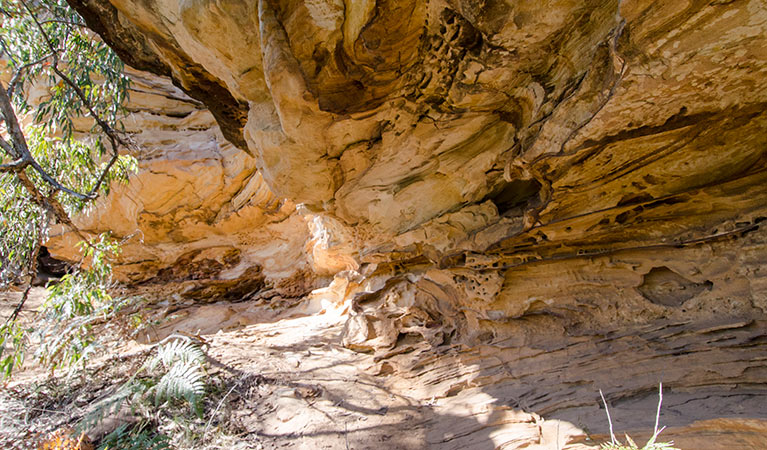
Marramarra is part of the traditional lands of the Darug Aboriginal people. Their use and respect of the land can be found in isolated corners of the park. The surviving Aboriginal sites, which provide the only indications of traditional life in the area, are of special importance to local Aboriginal communities. Cave art, rock engravings, grinding grooves, middens, scarred trees, and other occupational deposits and stone arrangements are all part of Marramarra.
Exploring the land
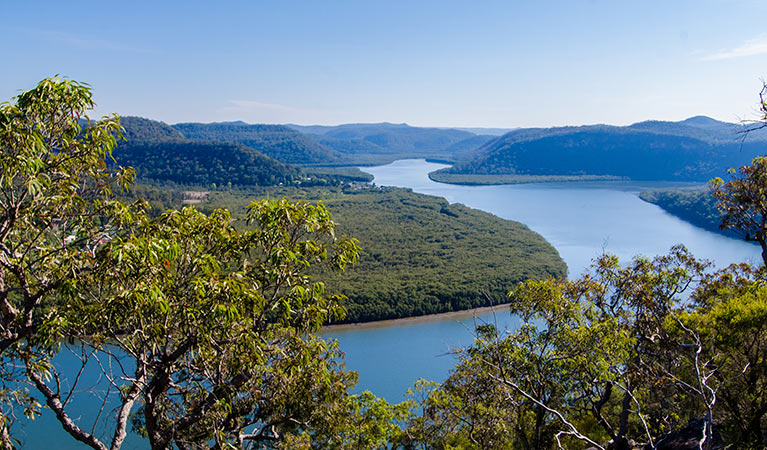
In the early days of the new colony, Hawkesbury River was a major communication route and supported an active river-based community. European exploration began as early as 1789 when Governor Arthur Phillip took his second trip up Hawkesbury River and camped at Gentlemans Halt. By 1884, there was a small community at Gentlemans Halt and a provisional school had been established; you can still see the foundations of a road and a wharf from this era. Other reminders of European historic heritage include remains of orange orchards along Marramarra Creek and the foundations of a hut, stone walls and a well at Big Bay.
Is it a bird?
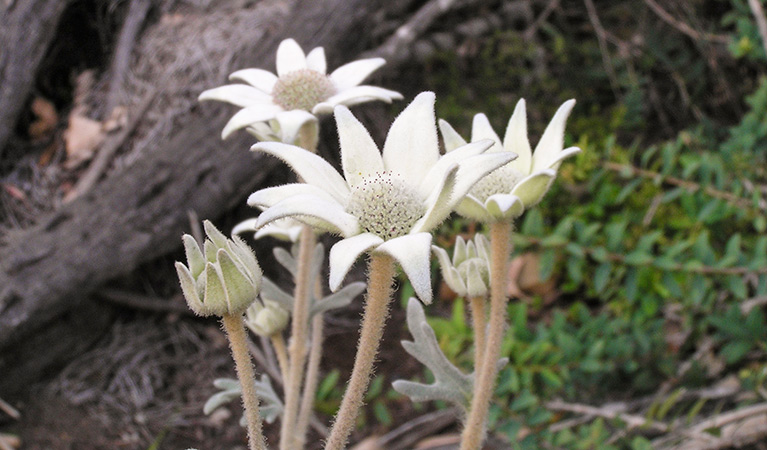
Marramarra is home to a great diversity of animals and birds, making it a great place for wildlife spotting and bird watching. You're likely to spot a white-breasted sea eagle, swamp wallaby, possum or kingfisher in your travels. If you're lucky, you might come across some of the more uncommon animals found here such as rails, gang-gang and glossy black cockatoos, and red-crowned toadlets.
- Canoelands Ridge walking track Canoelands Ridge walking track is a beautiful day walk near Hornsby and Sydney. See scenic Hawkesbury River views and native wildflowers along the way on this long hike.
- Marramarra Ridge to Smugglers Ridge walking track Discover the beauty of Marramarra, near Hornsby, on this day walk. Enjoy scenic views, historic heritage, colourful wildflowers and picnicking along the way.
Plentiful lands
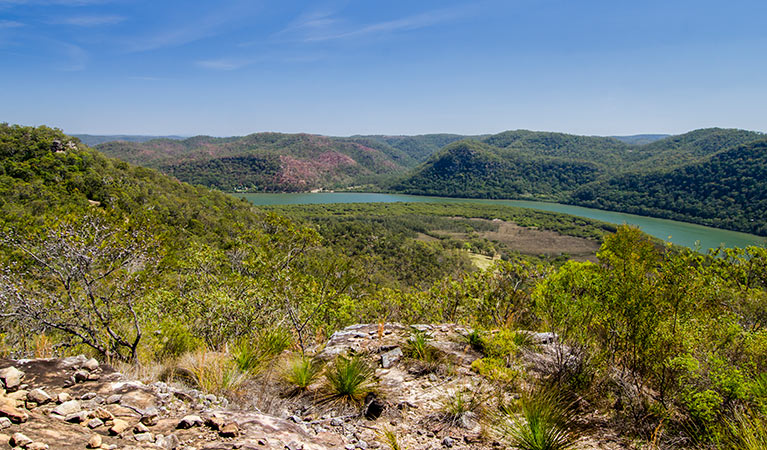
The sandstone ridges and deep gullies of Marramarra support a wide range of environments. Experience salt marsh and mangrove forests on the shores of Hawkesbury River, to tall open forest and ridge-top woodlands. In spring, the bush turns into a brilliant display of colour as the wildflowers burst in action. Discover the unique plant life and help preserve it – why not participate in the bush regeneration volunteer programs in the park?
- Canoelands Ridge walking track Canoelands Ridge walking track is a beautiful day walk near Hornsby and Sydney. See scenic Hawkesbury River views and native wildflowers along the way on this long hike.
- Marramarra adventurous journeys with YouthAdvance Fuel your sense of adventure on an exciting trip with YouthAdvance. You’ll learn navigation, teamwork and campcraft in beautiful Marramarra National Park, near Sydney.
- Marramarra Ridge to Smugglers Ridge walking track Discover the beauty of Marramarra, near Hornsby, on this day walk. Enjoy scenic views, historic heritage, colourful wildflowers and picnicking along the way.
